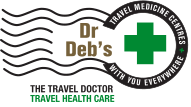World Zoonosis Day
July 5th, 2010Animals are a great source of joy and comfort to humans. However, there are some diseases that people can catch from animals.
.
Many of the major diseases of humanity are thought to have originated when germs of animals crossed from animals to humans. For example, Measles, is a common infection in children. Measles virus is closely related to rinderpest virus which is causes infection in cattle. Measles virus is thought to have evolved in an environment where cattle and humans lived in close proximity, perhaps about the 11th Century.
.
An individual is more likely to contract germs from contaminated food and water, but it makes sense to be informed about how to interact safely with animals as there is a long and rather scary list of potential diseases.
.
Some diseases are contracted directly from animals eg rabies from animal bites; some from the urine of animals eg leptospirosis; some from faecal matter eg toxoplasmosis from cats; some from the fleas of animals eg plague etc etc.
.
There are some interesting stories about animal diseases; Humans can catch salmonella from reptiles, in fact, since 1975, it has been illegal in the United States to sell or distribute turtles with shells that measure less than 4 inches in length. This size was chosen because small children are more likely to treat smaller turtles as toys and put them in their mouths. This ban prohibiting the sale of small turtles likely remains the most effective public health action to prevent turtle-associated salmonellosis.
.
These are the indeed some simple things you can do to prevent most potential hazards from animal contact.
.
TOP TEN TIPS FOR ENJOYING ANIMAL CONTACT SAFELY
.
1. Always wash your hands after handling animals, especially before handling food. Soap and water is best, but hand sanitiser is useful if nothing else is available. Small children should be supervised to make sure they handwash properly
2. Never allow animals to lick your face.
3. Never allow animals to eat from bowls etc that humans would use eg – dont give your plate to the dog to lick it clean – even if you wash the plate later.
4. Do not allow animals in the kitchen, and ideally dont prepare food while wearing clothes that have been in contact with animals – and most especially reptiles.
5 Never bathe animals or their habitats in your kitchen sink or bathe children with animals in the house especially reptiles.
6 If travelling in rabies infected countries make sure you know about rabies and consider vaccination before travel.
7 If working with cows, sheep, and farm animals, consider having Q fever Vaccination . The vaccine gives life long protection
8 If swimming in fresh water, ensure you do not swallow water, and cover any open wounds with waterproof dressings before you go in the water
9 Protect yourself from insect bites using good quality insect repellents, and be especially wary of ticks.
10 Dont eat dirt – there are all sorts of bacteria and worms ( see I told you these tips were easy!)
.
Persons with a weakened immune system need to be especially careful as they are more susceptible to diseases. This group includes children under 5 years age , pregnant women, those over 65, and persons on drugs that interfere with the immune system eg steroids or anticancer drugs.
I’m a big fan of animals. ( These are my dogs!)
Animals are a great source of joy and comfort to humans. However, lets use this World Zoonosis Day today to celebrate how we can interact safely with our animal friends.



